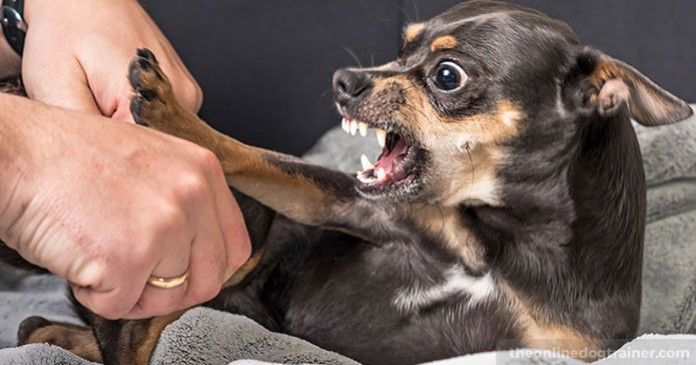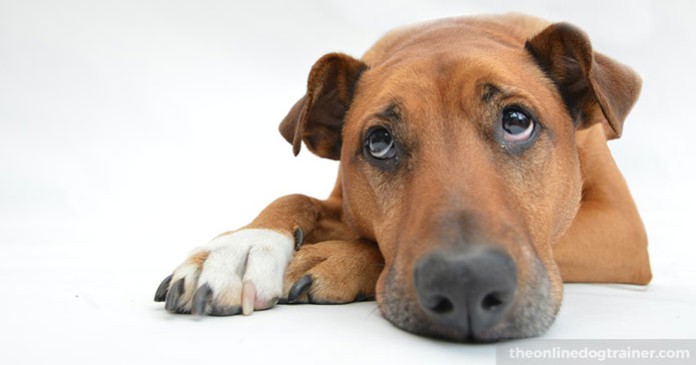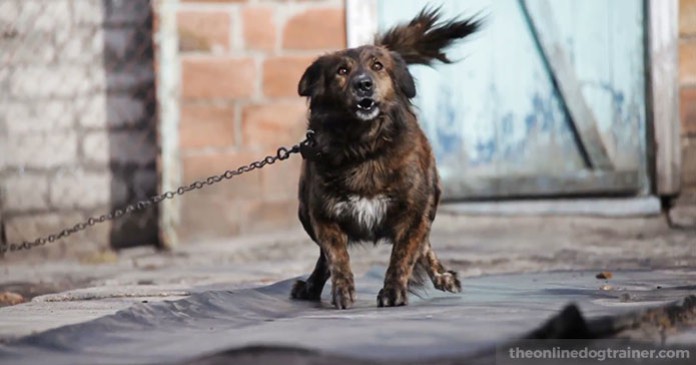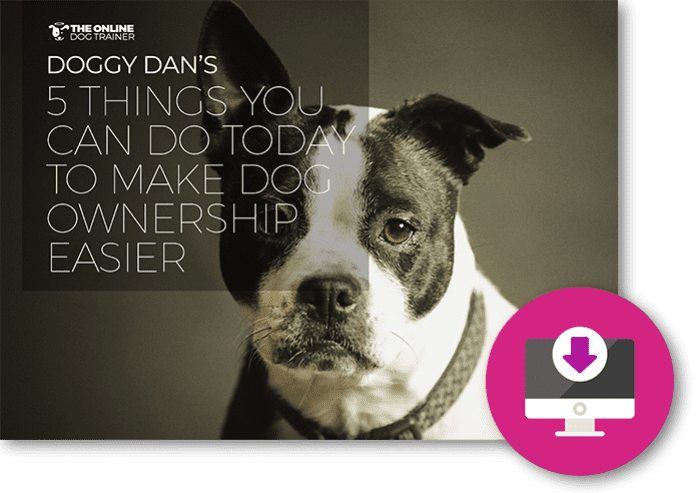What Happens if My Dog Only Has One Testicle

Dogs—while they are amazing, beautiful, wonderful creatures—are animals.
And, anytime you're spending time with an animal, there's the potential for something to go wrong.
Thankfully, over decades and decades of breeding and training, our pups have become so domesticated that they are mostly lovers, not fighters.
However, there are many factors such as…
- Age
- Training level
- Anxiety
- Past experiences
- DNA
- Health and well-being
- Fears and triggers
…that might cause a dog to break character, lash out, and bite.
That leads us to the age-old question—what do you do if your dog bites you or someone else?
I'm going to answer that question. However, before I give my full opinion, it's important that we talk about why dogs bite and dog safety.
Let's jump in…
Why Do Dogs Bite People?

Dogs are supposed to be delightful family members. In fact, for years. most of them have been bred to exhibit family-friendly personality traits.
That being said, there are several factors that can contribute to a dog taking on unusually aggressive traits. Here's an overview of a few of the main ones…
#1 Poor Socialization
Sadly, one of the biggest reasons dogs become aggressive is due to poor socialization.
While I know you would never abuse your dog, it's possible that, if you've rescued a pup, he may have had a difficult past.
In fact, a lot of rescue animals have had a tough start to life…
- Some have been beaten.
- Many have gone hungry.
- Some may have even been used as fighting or guard dogs.
However, many more have simply been neglected and have not been provided with the socialization they need with people.
I don't say this to scare you away from adopting a rescue.
Most rescue pups are delightful animals who become wonderful family members. But, some dogs will need patience and time to build confidence.
That being said, it's important to see if you can get info on a dog's history to make sure he will be a good fit for your family.
These pups who need socialization need time and patience to familiarize themselves with all of the strange things that we understand…
Things such as umbrellas, big loud voices, funny looks hats, little kids who run around all day, and everything else that we take for granted!
Given that time to adjust, they can become the most loyal of dogs, just like any other.
#2 Old Age
The older people get, the less nonsense they seem to tolerate. The same can be true with dogs.
It's possible that you've owned a dog for a really long time—a dog who has been tolerant of loud noises, busy households, and kids. Then, suddenly, your dog snaps without warning.
As dogs get older, some naturally tend to become grumpier.
If you want to build in tolerance so your dog remains a more chilled-out dog and less stressed, then check out my program The Dog Calming Code — which will do just that.
(Or, if you have a puppy you can start building a solid foundation now to prevent these issues from occurring in the first place with my Puppy Coach training program.)
And, if you already have an older, grumpy dog, it's essential that you keep an eye on kids or strangers who spend time around your pup to make sure they don't try to wind him up.
#3 Sickness
When dogs are sick or in pain, they often want to be left alone.
And, if they are bothered, they may resort to biting as an attempt to protect themselves.
If your friendly dog suddenly becomes aggressive, a trip to the vet might be in order.
#4 Poor Training
If a dog has never been trained NOT to bite as a puppy, there's a good chance that he will continue to bite as an adult.
This is why investing in dog training is so important.
Finding a comprehensive training program that helps you put an end to any mouthing of you or your clothing at an early age is very important. My suggestion is that all mouthing should stop around 16 weeks of age.
If you currently have a puppy at home, I encourage you to get started with my Puppy Coach training program right away!
#5 Human Error
While all 4 reasons we've discussed so far are true reasons why dogs bite, the biggest reason has to be human error.
You see, most dogs have no desire to bite until they are provoked.
Sometimes dogs give us warning signs that they are annoyed. For example, if a little kid is pulling on a dog's tail, a dog may snarl as a warning.
Other times, it's not as easy to tell.
For example, a mama dog might be protecting puppies that you're not aware of.
This is one of those tricky examples of a time when a dog might bite in regards to fear, rather than aggression.
Anytime you're around a dog, it's important to pay attention to body language.
Understanding what a dog is communicating with his tail, heckles, teeth, and body stance is a good way to prevent being bitten by accident.
#6 Overexcited
Dogs, like people, can easily become overexcited.
Maybe your dog gets over excited when he is chasing a ball, barking at the fence, or when food is about to be served.
Sometimes, when people get excited and when our adrenaline is pumping, we do or say things that we regret.
Dogs are no different!
So, the calmer your dog can remain, the less of a chance there is of your dog accidentally snapping!
If you are struggling with an overexcited dog, then again my program The Dog Calming Code is undoubtedly going to help.
#7 Protecting and Fear
The biggest reason of all that dogs bite is that they are protecting something or they are fearful of something.
Our world can be a strange place for dogs and much of what goes on they do NOT understand.
Is the UPS guy delivering flowers welcome or not? How can your dog know…
So, a lot of what will help your dog is showing him that you have got it all under control and are in fact in charge.
My Dog Bit Someone…Now What?

Now that we've covered the reasons that dogs bite, it's time to answer the age-old question…what do I do now?
Before I begin, I want to make it clear that every dog and every situation that led up to a dog biting is different.
As a dog owner, it's your job to determine the best course of action as to what needs to happen to keep yourself and your friends/family safe.
That being said, here are my thoughts…
"Inside every dog is a Good Dog"
First and foremost, I believe that almost all dogs—regardless of their history—have the potential to be good dogs. They may never be the most friendly and interactive dogs. However, they certainly can be trained not to be seriously aggressive to people without provocation.
And so, while biting is a serious issue that should not be taken lightly, there are things you can do to correct the behavior.
If your dog has bitten someone, your first step should be to hire a professional dog trainer or find some appropriate training.
An experienced dog handler may be able to help you uncover the reason behind why your dog became aggressive and can help you put training in place to ensure it never happens again.
Without training, the issue will not get better. So please take things seriously and get help sooner rather than later for the sake of both you and your dog.
At the same time, I would fully recommend you check out The Dog Calming Code because this is what I share with every single client that I work with and it's been remarkably successful.
Always Err on the Side of Caution and Safety
No matter how great your dog is, biting should always be taken seriously.
After all, if your dog has bitten once, he has the potential to do it again.
While you're getting the help you need in terms of training, there are a few safety precautions I advise you put in place to keep everyone safe—especially if you have kids or other people who come in and out of your home.
This is what I recommend…
- Use a humane muzzle: Muzzles are a great tool that can be used to keep people and other pets safe from a dog who bites. To see what humane muzzles I recommend, click here to check out my guide to muzzles.
- Use a short leash: When taking your dog for a walk or anywhere in public, ensure he is kept on a short leash so he can't get too close to people. If in doubt simply turn and walk away.
- Use a crate: If you have people coming to your home to visit, crate your pup. It's always better to be safe than sorry. There is no need to have your pup or dog running around just because there are friends over.
Be Prepared to Put Your Dog's Needs before Your Own

After a dog bites someone, it's possible that tough decisions may have to be made about your pup.
While I believe it's important to try to keep training your dog in your own home, you may also feel the need to consider the following…
I personally am a huge fan of 'No Kill Shelters', shelters that are based on the belief that all dogs can be saved with the correct set up in place such as https://bestfriends.org/
- Rehoming your dog: I hate the idea of having to rehome dogs. However, there are some circumstances in which it might be necessary—and even beneficial—for your dog. For example, if your dog hates noise and you have 3 screaming kids under the age of 5, then it may not be the ideal match. If you must consider rehoming your dog, do your best to find a close friend or family member who can help instead of dumping your dog at a shelter. That way, you can always visit and lend a hand.
- Putting Your Dog Down: Before putting your dog down, I can't encourage you enough to give my Dog Calming Code program a try. With a 60-day money-back guarantee, I really don't mind if you check it out and then decide it was not for you if it doesn't work out. That said, if your dog really has become aggressive due to illness or old age, biting might be a sign that he can no longer deal with the pain and stress of life anymore. Although this is very rare, I personally would only consider this to be the situation if a vet believes it to be the right thing to do due to a physical issue. While it's never easy to say goodbye, we have the ability to give our dogs the gift of a peaceful passing.
If you're struggling with a challenging dog, it's important to know you're not alone.
Dogs are amazing animals, but they require a lot of love, training, and patience to reach their full potential.
If you're considering giving your dog away, I want to encourage you to put that thought on hold and, instead, download a FREE copy of my guide 5 Things You Can Do Today to Make Dog Ownership Easier.
Get your FREE guide here!

Follow through on the recommendations I provide in my guide, and I assure you things with your dog will get better.
Here's to many safe, happy, and healthy years with your dog.
Cheers,

~Doggy Dan 🙂
What Happens if My Dog Only Has One Testicle
Source: https://theonlinedogtrainer.com/what-to-do-if-your-dog-bites/
0 Response to "What Happens if My Dog Only Has One Testicle"
Post a Comment